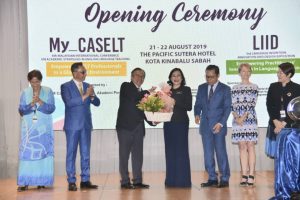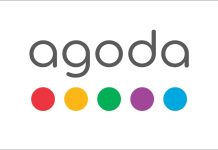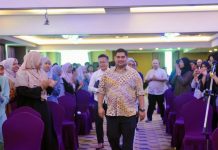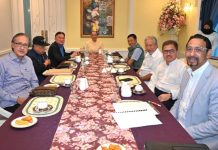
KOTA KINABALU: The education system should ensure that students are equipped with the appropriate and necessary skills to join the workforce and develop the nation.
Sabah Minister of Education and Innovation Datuk Dr Yusof Yacob said this in his speech when officiating the opening of the 6th Malaysian International Conference on Academic Strategies in English Language Teaching (My_CASELT) and the 3rd Language Invention, Innovation & Design (LIID) Exposition 2019, at the Pacific Sutera Hotel here Wednesday.
He said education is in the forefront of all business and technological advances and as technology and innovative ideas evolve rapidly, Malaysia cannot afford to lag behind other countries, especially in the South-East Asian region.
“Graduates can no longer wait for jobs to come to them; instead they have to go out and create jobs and turn them into industries.
“The Malaysian Education Blueprint 2015-2025 has mooted the idea of an Innovation Ecosystem as one of the platforms to enhance the competency of our future workforce,” he said. His speech was read by Jenifer Lasimbang, Assistant Minister of Education and Innovation.
On where the ELT professionals fit in the scheme of producing marketable graduates, Dr Yusof said in the House of Representatives or Dewan Rakyat, Prime Minister Tun Dr. Mahathir had stated that “Mastering English, in terms of teaching and learning is crucial as it is an international language needed for management and administration.”
“He also mentioned that proficiency in English can help generate more employment opportunities. Hence, the ability to master English is part and parcel of producing competitive graduates and the role of the ELT professional cannot be disputed,” Yusof stated.
“No matter how good and skilled a person is, ideas remain as ideas if not communicated and utilised. The ability to articulate thoughts and present ideas effectively is an art in itself. English may be the lingua franca, but it is not our mother tongue,” he said adding that ELT professionals play a vital role in equipping students with essential communication skills to meet the needs of the industry.
Dr Yusof also said the new generation of students presents a huge challenge to educators everywhere as their access to technological advances and social media networking makes the traditional classroom a dull and uninspiring place, and learning becomes a tedious experience.
Therefore, educators have to be innovative and ELT professionals require some degree of autonomy in determining how to connect with this new breed of learners, he said.
“The use of novel ideas and out-of-the-box techniques should be encouraged and facilitated so that academic activities are lively and productive, at both the mental and emotional levels. Accordingly, empowering ELT professionals to use their discretion should be part of our academic agenda.”
He later congratulated the organisers, APB for organizing the event and voiced his confidence that the meeting of intellects and ELT Professionals will yield useful ideas and strategies that contribute towards the enhancement of the education system in Malaysia.
Meanwhile, Vice-Chancellor of UiTM Emeritus Professor Ir. Dr Mohd Azraai Kassim, in his welcoming speech, said language fluency and effective communication abilities enable better and quicker interaction with the rest of the world.
“Being the international business language, English is a must to acquire and master,” he said. His speech was read by Deputy Vice-Chancellor Professor Dato’ Dr Rahmat Mohamad.
He said with the increasing need for better cross-cultural communications, it is vital that language practitioners move in tandem with the development in the multi-ethnic, multilingual and multicultural global context.
He said both the conference and the exposition are initiatives to address issues in Empowering ELT Professionals in a Globalised Environment (My_CASELT), and Empowering Practitioners’ Innovation in Language Teaching (LIID).
The choice of themes is apt as in a world that is becoming increasingly borderless and where social networking is becoming prevalent; the role of the English Language is most profound.
“Now that Industry 4.0 is upon us, where the latest technologies integrate with industry needs and global partnerships, we must strive to ensure that our graduates have the relevant knowledge, and more importantly the right skills to take on present and future job challenges in a technology-driven work environment,” he stressed.
According to him it was no longer an option to keep doing things the old way, adding “we need to get out of our comfort zone and rethink strategically to use our experience and credentials to offer new learning experiences and industry-relevant skills.”
“To meet this challenge head-on, we must empower our graduates with language and communication skills to help them build a successful career,” he stated..
“We know that once language barriers are reduced, doors will be opened even wider towards understanding different cultures even better,” he said adding that English, being the international business language, is a must to acquire and master.
“In the context of Malaysia, most of us are at least bilingual as our curriculum promotes the learningof English as a second language. Here in UiTM, we are fortunate as English is the medium of instruction in our classrooms and additionally, UiTM undergraduates are also required to learn a third language to further give them a competitive edge in the job market,” he stated.
He also said that as a centre of excellence, the university is on track in positioning itself as a point of reference for the future and they aspire to leverage on the strategic vision of establishing UiTM as a premier university of outstanding scholarship and academic excellence, to which this platform provides, to produce globally competitive graduates of sound ethical standing.
“In order to provide quality education and sustain innovation, concerted efforts from all stakeholders are of utmost importance. Particularly in UiTM, we hope to achieve synergy by working closely with schools, teachers; professional associations, government bodies, NGOs and the corporate sector,” he elaborated.

“I believe academics need to keep up with the latest teaching approaches and techniques to cater to the current and future generation of digital natives, who are well informed IT–savvy young people; ready to face any emerging challenges in the connected world,” he added.
He stated that the two-day event is one of the many opportunities for featuring, sharing, consolidating innovative ideas and creating opportunities for young researchers to network with experienced researchers from different backgrounds, stimulating innovation, and building purposeful cooperation.pr/BNN






